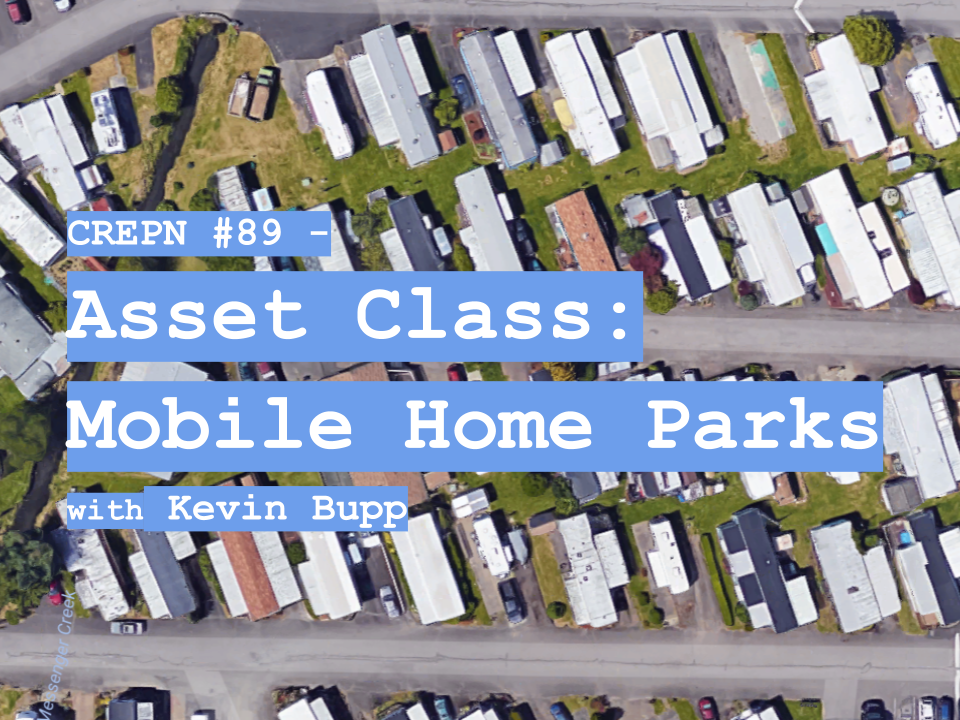
21 Apr CREPN #89 – Asset Class: Mobile Home Parks with Kevin Bupp
Posted at 07:00h
in Podcast
Real Estate is segmented into asset classes; single family, multifamily, office, retail, warehouse, etc. One overlooked asset class with big returns is Mobile Home Parks. [x_audio_embed][/x_audio_embed] Kevin Bupp is an experienced real estate investor who survived the crash, and has since devoted all of his efforts into buying and operating mobile home parks with great cash flow. Consider the following reasons and you will see why mobile home parks make sense:
- Diminishing supply: municipalities do not like these, and they are not permitting new parks. Unlike multifamly or single family, there is not the risk of a newer, nicer, nearby park to woo your tenants away.
- Fractured marketplace: unlike more established asset classes, mobile home parks still lack the organization and recognition of others, which provides opportunities to the educated buyer.
- Aging parks and owners: while the supply is not growing, the owners are getting older, and looking for a way out. Today may not be the day, but there is a day coming when these operators will want to sell.
- Demand: mobile home parks are affordable housing. There is tremendous demand for more affordable housing. The estimated national average space rent is around $300 per month.
- Management: with an onsite manager, you can manage the asset from anywhere.
- Expenses: ideally, the tenant owns their unit, and rent the ground from you. So, the typical maintenance expenses associated with housing fall on the tenant to maintain their home. That leaves streets, curbs, common spaces to you.
- Tenant turnover: it cost around $3,000 to move a single wide mobile home. This does not include setup, utilities, tie down, and skirt at the new location. Most tenants do not have the means to pay for an expensive move, and will likely not move.

